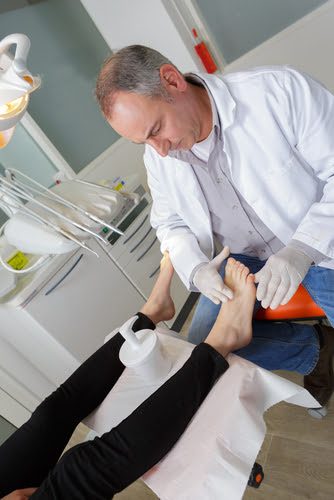Currently, online Doctor of Podiatric Medicine (D.P.M.) programs are not available due to the nature of the topic. On-campus, hands-on and extensive training is necessary to properly learn techniques used in podiatry, as is clinical and residency experience.
If you are an experienced podiatrist, you may be able to find opportunities for continued education and seminars that are offered online.
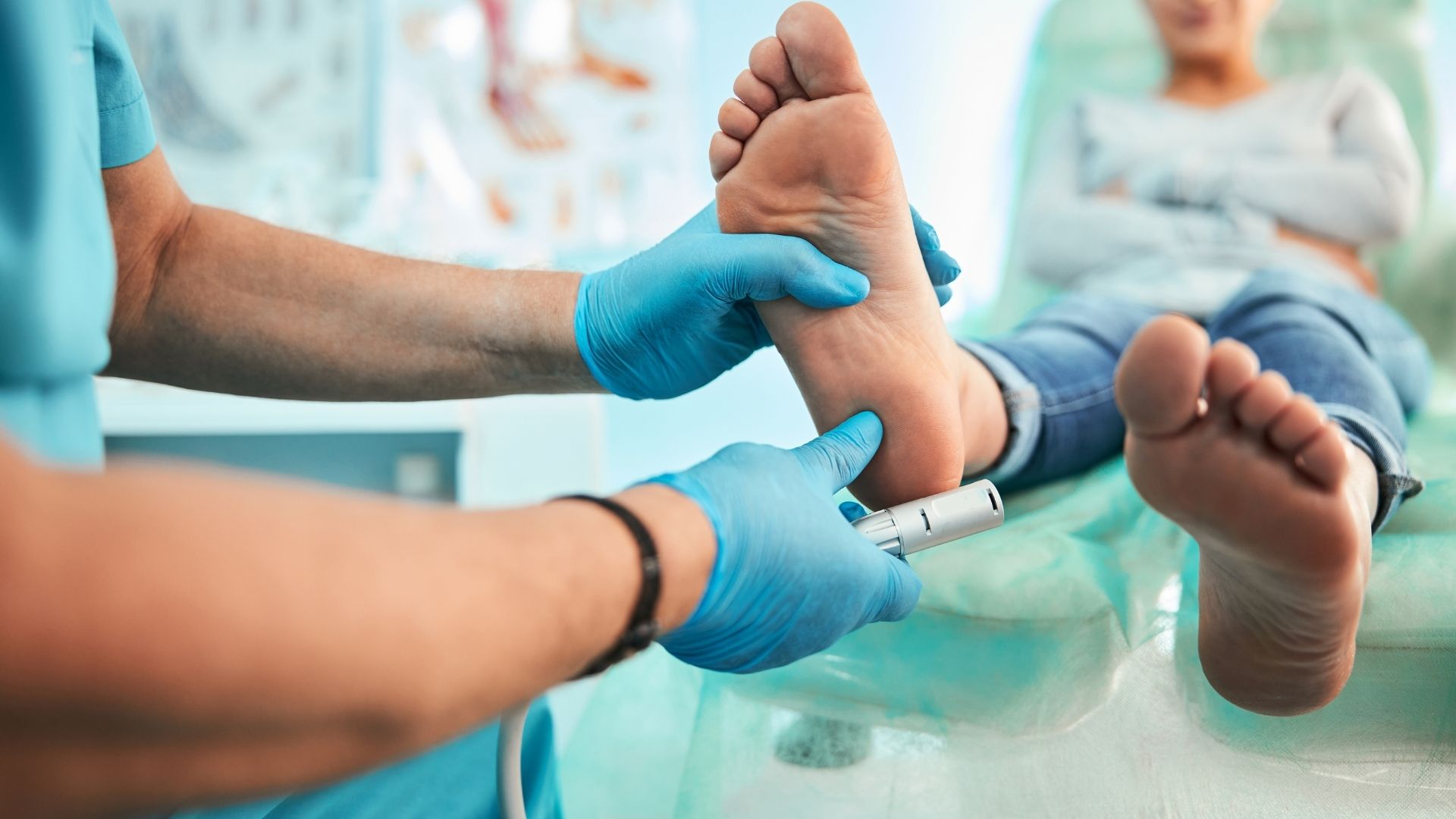
Additional Resource:
- The Best Doctor of Acupuncture Degree Programs
- The Best Doctor of Osteopathic Medicine Degree Programs
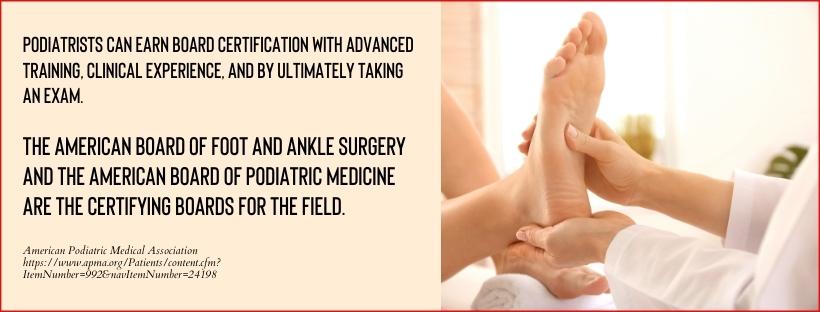
Best Doctor of Podiatric Medicine
Temple University School of Podiatric Medicine

Program Standouts:
The School of Podiatric Medicine at Temple University consists of an integral university health system. The dedicated podiatric medical school boasts one of the most extensive podiatric medical treatment facilities in the United States – the Foot & Ankle Institute.
With 40,000 patient visits annually, students have plenty of opportunities for hands-on training as well as a unique connection to the university system of Temple University.
The four-year program prepares students for rigorous postgraduate training that strengthens their medical skills in foot and ankle illnesses and injuries. The residency training also includes:
- podiatric sports medicine,
- foot surgery,
- and the management of foot problems.
Students benefit from the staggered schedule, with the courses starting and ending at various times during the academic year. There are fewer final exams since several courses can overlap. Students must complete a winter and summer internship, too.
Temple University also offers a dual degree program where students earn a Master of Public Health degree along with a DPM degree. Both degrees can be earned in five years, and podiatric medical graduates are uniquely qualified to provide podiatric care in public health settings.
Campus Location: Philadelphia, PA
Accreditation: Temple University is accredited by the Middle States Commission on Higher Education
Admission Requirements:
- Minimum 90 credit undergraduate requirement
- Personal interview
- Cumulative GPA of 3.2
- An acceptable MCAT score
- Academic letter of evaluation
Course Sample:
- Physiology
- Biomechanics
- Lower Limb Anatomy
- Neuroanatomy
Degree Outcomes:
The residency placement rate in 2022 at Temple University School of Podiatric Medicine was 40%
LEARN MORE ABOUT THE DOCTOR OF PODIATRIC MEDICINE AT TEMPLE UNIVERSITY SCHOOL OF PODIATRIC MEDICINE
Des Moines University College of Podiatric Medicine & Surgery
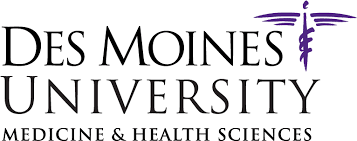
Program Standouts:
Des Moines University’s DPM program grants students an advantage in their medical education. The program consists of an “open-door” faculty, extensive facilities, and a well-respected medical curriculum. Students and faculty make up a supportive community and combine learning and service to create a collegial atmosphere.
DMU also offers students the option of earning a dual degree in one of four programs:
- a Master of Public Health,
- a Master of Science in Anatomy,
- a Master of Science in Biomedical Science,
- or a Master of Healthcare Administration.
With a dual degree, graduates expand their career opportunities and make meaningful contributions to the fields of podiatry, science, and public health.
The four-year DPM program offers students a broad medical curriculum during their first two years at the College of Osteopathic Medicine before moving forward with specialized training as aspiring podiatrists. The interprofessional training enables students to gain the skills necessary to become working members of an integrated health care team.
Students gain exceptional depth and breadth of knowledge in foot health, foot deformities, and nail disorders, among others. DMU provides its students with abundant opportunities for hands-on learning in its state-of-the-art Anatomy Lab, Iowa Simulation Center and Human Performance Lab.
Students engage in clinical rotations during their third year at the on-campus Foot and Ankle clinic, as well as off-campus sites across Iowa. During Year Four, students also engage in residency training in various areas, including:
- podiatric surgery,
- podiatric sports medicine,
- and physical therapy.
DMU emphasizes the practice of evidence-based medicine, offers research opportunities via the on-campus summer research program, and encourages participation in student clubs.
Faculty members come from diverse clinical backgrounds and use diverse teaching methods, including problem-based learning, lectures, and case studies, with an emphasis on clinical applications. Postgraduate training is also available via its three-year residency program.
Campus Location: Des Moines, IA
Accreditation: Des Moines University is accredited by the Higher Learning Commission
Admission Requirements:
- a bachelor’s degree from a regionally accredited institution (but exceptional students with at least 90 semester hours may be considered for admission),
- DMU will only consider applicants with at least a 2.70 cumulative GPA,
- and at least C- on prerequisite courses and other credits.
DMU will conduct a complete criminal background check on all admitted students. Admission can be revoked with failure to disclose all past and present dismissals, charges, and convictions.
- MCAT
- Transcripts
- Letters of Recommendation
- Work Experience
Course Sample:
Aside from the didactic coursework, students must complete 40 weeks of clinical experience, including:
- core hospital rotations,
- internal medicine rotation,
- and podiatric private practice.
Elective options include:
- Dermatology,
- Emergency Medicine,
- Global Health,
- Orthopedics,
- Biochemistry,
- Pathology,
- Biomechanics,
- Geriatrics.
Degree Outcomes:
The Des Moines University College of Podiatric Medicine & Surgery has a regular residency placement rate of 100%. Graduates possess the clinical, interprofessional, and communication skills to work as respected podiatrists who provide exceptional medical care in foot and ankle care. DMU’s podiatric medical graduates select their specialization after getting their license.
LEARN MORE ABOUT THE DOCTORATE OF PODIATRIC MEDICINE AT THE DES MOINES UNIVERSITY COLLEGE OF PODIATRIC MEDICINE & SURGERY
New York College of Podiatric Medicine

Program Standouts:
The New York College of Podiatric Medicine has a unique program devoted to laboratory work and classroom instruction. The first two years of the program include work in the pre-clinical sciences, such as:
- anatomy,
- physiology,
- microbiology,
- biochemistry,
- pharmacology,
- and pathology.
Students in the third and fourth years concentrate on courses in the clinical sciences, gaining experience in affiliated hospitals and focusing on both podiatric medicine and general medicine.
The four-year program emphasizes the importance of balanced medical training among podiatric physicians. Students learn through diverse experiences covering:
- internal medicine,
- podopediatrics,
- functional orthopedics,
- and traumatology
- in addition to coursework in general and podiatric surgery.
Year Four students also participate in at least four-month-long externships in the US and abroad. Research opportunities in podiatry and other fields like dermatology and neurology are offered, too.
Mount Sinai Hospital and the Foot Center of New York are popular sites for hands-on research for students. Students enjoy a wide range of academic support services, too, including academic advising, peer tutoring, and accommodations for disabilities.
NYCPM also offers a dual degree program in partnership with the Mount Sinai School of Medicine. Students in the program earn the DPM and Master of Public Health degrees in 4 to 4.5 years and take classes in both schools.
Campus Location: New York, NY
Accreditation: The New York College of Podiatric Medicine is accredited by the Council on Podiatric Medical Education
Admission Requirements:
NCYPM offers two admission entry dates – January and September (spring semester). Students admitted in January complete their degree in 4.5 years and start their education with a decelerated 2.5-year pre-clinical program. Students admitted in September start with a modified schedule.
- Completion of a minimum of 90 semester hours of undergraduate education
- MCAT
- Three letters of recommendation
Course Sample:
- Bacteriology
- Biochemistry
- Epidemiology
Degree Outcomes:
According to the college website, between 1996 and 2009, NYCPM’s residency placement was 100%.
LEARN MORE ABOUT THE DOCTOR OF PODIATRIC MEDICINE DEGREE PROGRAM AT THE NEW YORK COLLEGE OF PODIATRIC MEDICINE
Western University College of Podiatric Medicine
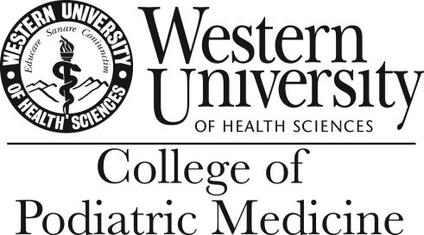
Program Standouts:
The Doctorate of Podiatric Medicine at Western University College of Podiatric Medicine offers the opportunity for graduates to benefit others. Podiatric physicians help to prevent amputations and work with cutting-edge technology and diabetic wound healing. The program at Western University College uses the most modern techniques in the program of Podiatric Medicine.
Admitted students must attend the five-week Summer Preparedness and Readiness Course as preparation for the rigorous curriculum. Here, the course introduces the courses and their descriptions, the program’s interprofessional environment, and the academic requirements.
Students gain a broad spectrum of medical knowledge during their first two years thanks to a medical curriculum culled from the College of Osteopathic Medicine of the Pacific.
The entire curriculum emphasizes excellence, comprehensive patient care, and compassion while also providing state-of-the-art podiatric training via virtual reality and clinical experiences starting in your freshman year.
Campus Location: Pomona, California
Accreditation: Western University College of Podiatric Medicine is accredited by the Western Association of Schools and Colleges
First and Second-Year Curriculum Focus:
- 1st-year focus: Normal functions of the body, health, and wellness
- 2nd-year focus: Restoration of health, diagnosis, and treatment
Degree Outcomes:
According to the Western University College of Podiatric Medicine website, “podiatric medicine opens doors to research and participation in clinical trials for novel treatments and technologies.” Graduates are equipped to open their own practice, engage in research, consult for the government, or work in pharmaceuticals.
LEARN MORE ABOUT THE DOCTORATE OF PODIATRIC MEDICINE AT THE WESTERN UNIVERSITY COLLEGE OF PODIATRIC MEDICINE
Dr. William M. Scholl College of Podiatric Medicine at Rosalind Franklin University of Medicine and Science

Program Standouts:
Considered among the best podiatric medical schools because of its emphasis on excellence in academics, research, and patient care, students at RFU gain clinical knowledge and skills in both general medicine and podiatry.
Students contribute to positive change in the field of medicine as early as their freshman year through didactic coursework, research participation, and clinical rotations. The four-year DPM program introduces the clinical sciences in the first-year curriculum and then narrows the focus to podiatry in the succeeding years.
The residency training spans several medical fields, including:
- emergency medicine,
- internal medicine,
- and surgery, aside from podiatric medicine and surgery.
Senior students also gain clinical experiences in the Rosalind Franklin University Health Clinics, particularly at the Scholl Foot & Ankle Center.
RFUMS also offers a dual degree program where students earn DPM and Ph.D. degrees.
Campus Location:
Pomona, California
Accreditation:
Rosalind Franklin University is accredited by the Higher Learning Commission
Dr. William M. Scholl College of Podiatric Medicine is accredited by the Council on Podiatric Medical Education.
Admission Requirements
Applicants must complete several prerequisite courses with laboratory work, including general biology, general chemistry, organic chemistry/biochemistry, and physics, as well as English.
At least 90 semester hours, or equivalent to three years, of undergraduate academic work, must be completed. Only applicants with competitive science and overall GPAs will be considered.
Application requirements include:
- Official transcripts of colleges attended
- Letters of recommendation, including a letter from a podiatrist indicating the applicant have demonstrated interest in podiatry by shadowing.
- MCAT scores not less than three years old at the time of matriculation
Applicants must demonstrate a capacity for leadership through academic and/or community service, as well as demonstrate strong written and oral communication skills. Accepted students must consent to a full background check.
Course Sample
- Clinical Anatomy
- Orthotic Laboratory Workshop
- Podiatric Clinical Skills and Reasoning
- Community Health, Ethics, and Professional Responsibility
During their third year, students must complete capstone clinical experiences in podiatric medicine, radiology, and surgery.
Fourth-year students spend the entire year on clerkships in hospitals and at the Scholl College of Podiatric Medicine in diverse areas like medicine, general surgery, and emergency medicine.
Degree Outcomes:
RFUMS only accepts 98 students in each cohort but receives more than 600 applicants for the limited number of slots. Graduates become medical professionals who see the patient as a whole person but also provide specialized care for their lower extremities.
LEARN MORE ABOUT THE DOCTOR OF PODIATRIC MEDICINE AT ROSALIND FRANKLIN UNIVERSITY COLLEGE OF PODIATRIC MEDICINE.

Frequently Asked Questions
What does a podiatrist do?
We’ve all had that stabbing pain in the ankle while jogging or the stubborn heel spur that stabs us with every step. What sort of specialist does one see about such problems? A podiatrist. Podiatrists specialize in foot, ankle, and lower leg ailments due to injuries, chronic disease, or aging. Podiatrists are permitted to prescribe medications, orthotics, and therapy and perform surgery as needed.
As foot and ankle surgeons, podiatrists work as valued members of a healthcare team, too, such as with other physicians specializing in kidney disease, infectious diseases, and internal medicine. Podiatrists also provide specialized care, such as diabetic foot care.
How do I earn my DPM degree?
Many universities have dedicated podiatric medical schools with both higher education accreditation (e.g., HLC or MESCHE) and programmatic accreditation, as well as recognition by the American Podiatric Medical Association, the national podiatric medical association in the US.
Every podiatric medical school offers a combination of a broad spectrum of medical knowledge and specialized training in podiatry. Students also learn surgical skills in the treatment of illnesses and injuries of the lower extremities, in addition to the maintenance and restoration of foot health.
Admission to a Doctor of Podiatric Medicine program typically requires a bachelor’s degree in a relevant field. However, many schools also consider exceptional applicants with at least three years or 90-semester credits. Applicants must have strong academic performance in the sciences as well as possess strong communication skills. Good MCAT scores, letters of recommendation, and official transcripts are required.
Podiatric medical students must be prepared for the academic rigor and challenges of residency training by being physically and mentally fit. Adopting a balanced lifestyle is a must, and it’s important to think, behave and act like health professionals, particularly in peer interactions and patient care.
Aside from classroom instruction, podiatric medical students also engage in laboratory work, residency training, and clinical experiences. The combination of didactic and hands-on training means these aspiring health professionals possess the basic skill sets of a medical doctor and the specialized skills of a podiatric physician.
A podiatric physician must also possess key skills that enhance patient care while also promoting podiatry in the medical field. These include compassion for patients and their families; critical thinking skills in the diagnosis and treatment of illnesses and injuries; and interpersonal skills for interactions with patients, peers, and others.
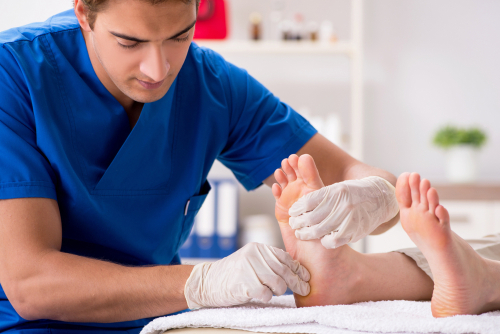
What kind of salary can I expect as a podiatrist?
A podiatric physician can earn more than $239,000 per year, but the median wage for podiatrists is $148,720 per year (May 2022). Podiatrists work in a wide range of settings, too, including offices of physicians, federal government agencies, and hospitals.
Their annual salary and other compensation benefits depend on their geographical location, type of workplace, and work experience. In general, a podiatric physician with a private practice tends to earn more.
Job growth is projected at 2% (2022-2032), with about 300 openings every year.
Do I need a license to practice Podiatric Medicine?
Yes, all states require licensure to practice, but each state has its specific licensing requirements, so check first. Aspiring podiatrists must pass the American Podiatric Medical Licensing Exam, aside from a state-specific exam, when required.
Many podiatric physicians also become board-certified practitioners by complying with the requirements set by the American Board of Multiple Specialties in Podiatry, the American Board of Podiatric Medicine, and the American Board of Foot and Ankle Surgery.
Board certification isn’t for entry-level podiatric physicians but for practitioners who have relevant work experience for a number of years and fellowship training.
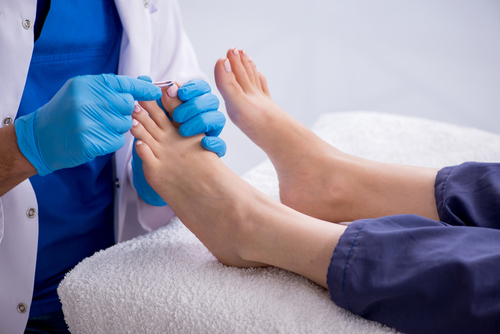
Are there continuing education requirements for Podiatrists?
According to the Council of Podiatric Education, continuing education is a lifelong responsibility of podiatric physicians!
Continuing education is a must because of the technological and medical advances in podiatry in particular and the medical sciences in general. Podiatry isn’t a stagnant field since it’s influenced by and influences the trends, advancements, and changes in society as a whole.
Podiatric physicians must also pursue continuing education as part of the license renewal process. Every state has its own continuing education requirements for this purpose, but 40-50 credits are typical. In the State of Texas, for example, podiatrists must earn at least 50 CME credits every biennium for license renewal purposes.
The acceptable coursework for CME credits is typically related to podiatric medicine, although training in other areas, such as human trafficking, is also considered. Examples include courses in the lower extremities, cardiovascular disease, and pain management.
What schools offer Doctor of Podiatric Medicine degrees?
There are a limited number of properly accredited schools that offer Doctor of Podiatric Medicine programs in the U.S.; however, here are a few programs to check out:
- Temple University School of Podiatric Medicine in Philadelphia, PA;
- Des Moines University College of Podiatric Medicine & Surgery in Des Moines, IA;
- New York College of Podiatric Medicine in New York, NY;
- Western University College of Podiatric Medicine in Pomona, CA;
- and Dr. William M. Scholl College of Podiatric Medicine at Rosalind Franklin University of Medicine and Science.
Without a doubt, good health is desired by all. Most often, it starts with our feet. Earn your Doctor of Podiatric Medicine degree today to help others create a foundation they can “stand on!”
The Bottom Line
Locating an online degree program in the field of podiatry can be a challenge due to the hands-on training that is required. A surgery residency may be required as well.
Through a DPM degree program, you can expect to study topics such as surgical training, infectious disease, physical medicine, wound care, ingrown toenails, ankle conditions, and prevention diagnosis and treatment of all things foot-related.
Take a look at this: The Best Doctor of Oriental Medicine Degree Programs
